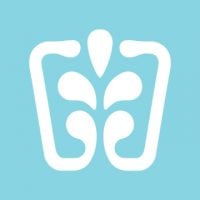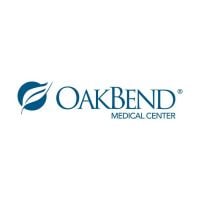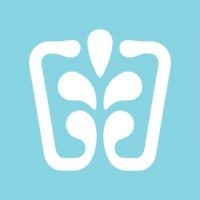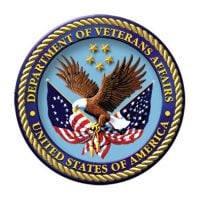List of Alcohol and Drug Treatment Facilities in Richmond, TX
There is no question that drug addiction and abuse is a serious problems in Richmond, Texas. In fact, the National Institute on Drug Abuse (NIDA) has designated Richmond as one of the highest-risk areas in the country for drug abuse. This is largely due to the availability of drugs and the high levels of crime and violence associated with drug trafficking and use.
The most commonly abused drugs in Richmond include marijuana, methamphetamine, heroin, and prescription drugs. These drugs are easily accessible and their use is often associated with criminal activity.
Richmond is not only a high-risk city for drug abuse, it is also home to a number of excellent drug and alcohol treatment centers. If you or someone you love is struggling with addiction, there is no better place to get help than in Richmond.
Find a facility on our list below that fits your needs, or call us for individualized support. There is hope for recovery and a new life with a number of drug and alcohol addiction programs available throughout Richmond.
One Call Makes This So Much Easier
We will help you find treatment based on your location, budget, and specific needs and help you get started safely.
Free + Confidential Consultation
Browse 5 Centers in Richmond, Texas
Westpark Springs is an addiction treatment facility in Richmond, Texas that offers comprehensive and accredited treatment plans for various addictions and mental health issues, utilizing evidence-based therapies and holistic approaches to help individuals achieve long-term sobriety.


Oakbend Medical Center is a Richmond, TX-based medical facility that specializes in dual diagnosis and mental health treatment, offering comprehensive assessment and individualized plans as well as a variety of therapeutic techniques and insurance acceptance.
Westpark Springs - Adult Programs in Richmond, Texas, is a leading addiction treatment facility offering comprehensive services such as detoxification, dual-diagnosis treatment, intensive outpatient programs, inpatient treatment, and aftercare support to individuals struggling with drug addiction, alcoholism, opioid addiction, substance abuse, and dual diagnosis.

Oakbend Medical Center in Richmond, Texas offers personalized, evidence-based mental health services for those suffering from dual diagnosis and other mental health issues, including inpatient, dual-diagnosis, and outpatient care, cognitive behavioral therapy, family therapy, trauma therapy, couples therapy, individual therapy, nutrition therapy, experiential therapy, and nicotine replacement therapy.
Michael E. DeBakey VA Medical Center - Richmond VA Outpatient Clinic

Drug and Alcohol Treatment in Richmond, TX
Fortunately, there are a number of excellent drug, alcohol, and detox treatment centers in Richmond that can help people overcome their addiction and get their lives back on track.
What Types of Treatment Are Available in Richmond, Texas?
There are a number of drug and alcohol treatment options available for someone looking to get sober in Richmond, Texas. The most common type of treatment is an outpatient program, which allows people to continue living at home while receiving treatment.
There are also inpatient programs available, which require people to live at a treatment center while receiving care. This type of program is ideal for people who need more intensive treatment.
There are detox programs available for people who need to rid their bodies of drugs or alcohol before starting treatment. Detox must be supervised by a medical professional and can be done in an inpatient or outpatient setting.
Once detox is complete, people can begin participating in therapy, which can be done in individual, group, or family settings. Therapy is an important part of treatment and can help people understand the root cause of their addiction.
Drug Abuse Statistics in Richmond, Texas
Drug use is highest among young adults aged 18-25. Marijuana is the most commonly abused drug in Richmond. In a survey of high school students, 17.5% reported having tried marijuana. The city has also seen a recent spike in methamphetamine use. A report shows, in drug-related emergency room patients, 6.5% reported using methamphetamine.
Drug overdoses are the leading cause of death for people under the age of 50 in Richmond. In 2019, there was 210 overdose incident in the city. The majority of these overdoses were caused by opioids such as heroin and fentanyl.
- 20% of residents aged 12 or older reported binge drinking.
- 36% of people who abuse prescription painkillers will develop an addiction.
- 45% of people in drug treatment programs are addicted to multiple drugs.
- The number of people seeking treatment for heroin addiction has increased by 40% in the past five years.
Additional Treatment Centers in Texas
Texas is one of the primary hubs for drug smuggling into the country. The border between Texas and Mexico is more than 1,000 miles long. More than 10 million residents use alcohol every year and more than 25% of those are minors. Alcohol and drug use has become so common in Texas that almost 15% of all deaths can be attributed to these substances.
Still haven't found the right recovery center? Browse nearby Texas cities.
- Huntsville, TX (74.3 mi.)
- New Braunfels, TX (143.0 mi.)
- Belton, TX (140.8 mi.)
- Bowie, TX (296.6 mi.)
- Pierre, TX (1,047.1 mi.)
- Mineola, TX (208.1 mi.)
- Hereford, TX (527.5 mi.)
- Bells, TX (275.9 mi.)
- Houston, TX (23.6 mi.)
- Dickinson, TX (44.0 mi.)
- Round Rock, TX (129.7 mi.)
- Rio Grande City, TX (294.6 mi.)
- Houston, TX (227)
- Dallas, TX (120)
- San Antonio, TX (108)
- Austin, TX (104)
- Fort Worth, TX (85)
- El Paso, TX (44)
- Lubbock, TX (34)
- Corpus Christi, TX (31)
How To Quit Drugs or Alcohol Safely
If you are addicted to drugs or alcohol, quitting can seem like an impossible task. However, with the help of a qualified treatment center, it is possible to quit safely and effectively.
In the treatment center, you will receive medically-supervised detoxification to help you safely and effectively withdraw from drugs or alcohol. After detox, you will participate in individual and group therapy to help you understand the root cause of your addiction and how to overcome it.
You will also have the opportunity to take part in recreational and educational activities as part of your treatment. These activities can help you learn new skills and coping mechanisms that will help you stay sober long-term.
However, perhaps the most important part of your treatment will be the support you receive from the staff and other residents at the center. This support can provide you with the strength and motivation you need to stay sober after you leave treatment.
The best way to find a reputable and qualified treatment center is to ask for referrals from your doctor, therapist, or other mental health professional. You can also search online for reviews of treatment centers.
Here are a few things to keep in mind when looking for a drug or alcohol treatment center:
- The center should be licensed and accredited by a reputable organization.
- The center should have qualified and experienced staff.
- The center should offer a variety of treatment options, including detox, counseling, and aftercare.
- The center should be located in a safe and comfortable setting.
Private vs. Public Rehab
When choosing a drug or alcohol treatment center, you will need to decide whether you want to go to a private or public rehab.
Private rehabs are usually more expensive than public rehabs, but they also offer a number of advantages. For example, private rehabs often have smaller clientele, which can make for a more intimate and supportive environment.
Private rehabs also typically offer more amenities and higher-quality care than public rehabs.
If you are considering a private rehab, be sure to research the center thoroughly to make sure it is reputable and has a good track record.
Public rehabs are usually less expensive than private rehabs and they often have a wide range of treatment options available. But, public rehabs can also be more crowded and less personal than private rehabs.
If you have the resources, it is recommended to choose a private rehab over a public one. However, if you are unable to afford private rehab, there are many excellent public rehabs that can provide you with high-quality care.
Religious vs. Holistic vs. Traditional Rehab
When choosing a drug or alcohol rehab, you will also need to decide what type of rehab you want to attend.
There are three main types of rehab: religious, holistic, and traditional.
Religious rehabs focus on the spiritual side of addiction and treatment. They often incorporate prayer and meditation into the treatment process.
Holistic rehabs take a more natural approach to treatment. They often incorporate yoga, acupuncture, and massage into the treatment process.
Traditional rehabs use a more traditional approach to treatment. They focus on counseling and therapy to help you overcome your addiction.
No matter what type of rehab you choose, make sure that the center is reputable and has a good track record.
After Rehab: Continuing Care Plans
After you complete treatment at a drug or alcohol rehab, it is important to have a continuing care plan in place.
A continuing-care plan will help you stay sober after you leave treatment. It typically includes things like weekly counseling sessions, group meetings, and random drug testing.
Your continuing care plan should be tailored to your specific needs and goals. It should also be tailored to the type of rehab you attended.
If you do not have a continuing care plan in place, it is very easy to relapse after treatment. So, be sure to discuss your continuing care plan with your counselor or therapist before you leave rehab.
What Should I Do If I Relapse After Drug Rehab?
If you do relapse after drug rehab, it is important to seek help immediately.
There are many resources available to help you get back on track. You can contact your local AA or NA group, go to counseling, or enter a sober living facility.
You should also consider going back to treatment. If you go back to the same treatment center, they will often give you a discount.
Relapsing is not a sign of failure. It is a sign of strength. It takes a lot of courage to seek help after a relapse. So, be proud of yourself and get the help you need to recover.



